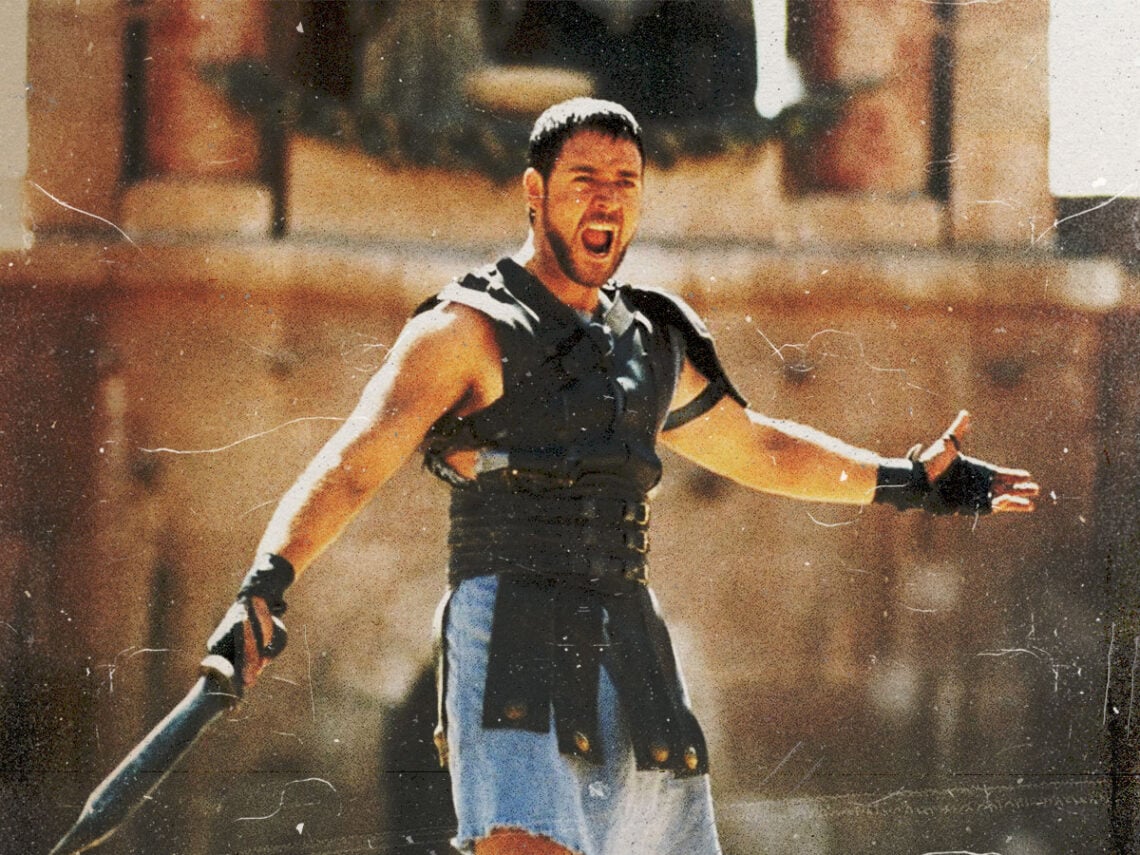
(Credits: Far Out / Dreamworks)
Cinema has always been and will always be a visually-driven medium, with Russell Crowe stating his case for a filmmaker to take pride of place among the most aesthetically pleasing directors to wield a megaphone.
It sounds like a basic requirement of the medium because nobody wants to waste two hours of their life watching something ugly that fails at the basic fundamentals, but there needs to be substance to go with the style. Again, perhaps pointing out the obvious, but there are many would-be auteurs out there who don’t provide an ounce of steak to go with their sizzle.
For instance, Zack Snyder knows how to craft a beautiful image and compose an eye-catching frame, but has he ever told a compelling story on-screen? It’s enough to incite a riot on the internet to suggest that he hasn’t, but are any of his movies realistically going to stand the test of time, endure for generations, and be revisited by students and scholars alike as timeless delights? Unless something goes drastically wrong, definitely not.
He wasn’t raised on a steady diet of arthouse fare, though, not that it has to be a bad thing. He hails from the school of advertisement and commercial directors who broke into cinema, a pipeline that’s gifted the industry everyone from Jonathan Glazer and David Fincher to Michael Bay and Adrian Lyne.
However, it’s hard to look past Ridley Scott as its most successful export, with Crowe calling him “one of the great visual artists of our time” in an interview with The Scotsman. There might be an element of bias in play when they’ve worked on multiple productions together, but there’s also the ironclad and indisputable fact the Academy Award-winning Gladiator star is absolutely correct.
Scott was nearing 40 by the time he’d ever taken the reins on a feature, and his second and third films were two of the greatest sci-fi flicks in history after he followed up The Duellists with Alien and Blade Runner. He may have been viewed in certain circles as a novice, but he was vastly experienced in the ad world having overseen hundreds upon hundreds of projects.
Cinema was merely an extension of that, with the notable difference being that instead of having to capture a viewer’s eye and keep them captivated for a minute or two, he had to sustain that interest over the course of an entire feature. Like many veteran directors, he’d not been immune from the occasional stinker or two, but for the most part, even his shittiest films are wonderful to drink in on a visual level.
World-building has always been Scott’s forte, whether it’s creating one from the ground up or enhancing one that already exists. It’s on full display in the aforementioned Alien and Blade Runner as well as Gladiator, The Martian, and American Gangster, all of which feel like living, breathing realities that are both tangible and immersive. In the case of the latter, it might have been a street-level crime drama, but the way Scott frames it presents a world that’s rooted in real life but exists just a degree or two askew of unwavering documentary.
On the other side of the coin, nobody’s going to herald the turgid Christopher Columbus flop 1492: Conquest of Paradise, the banal biblical epic Exodus: Gods and Kings, or even his forays back into Xenomorph territory with Prometheus and Alien: Covenant as being among his finest work, but dammit they’re nice to look at. Visuals can never outstrip a substandard story, but they certainly make the experience of sitting through them a more palatable one.
There are few filmmakers who make movies on the scale that Scott does but treat them with the same eye for detail and rich sense of atmosphere, especially as it applies to their lesser efforts. Crowe has experienced both sides of it on the lauded Gladiator and the lackadaisical Robin Hood, but his opinion remains entirely valid.
It would be unfair to call Scott a visualist first and foremost when he’s spent more than 40 years lurking near the top of the directorial ladder, but there aren’t many to have followed in his wake to maximise the majesty of the moving image in quite the same way.
Related Topics